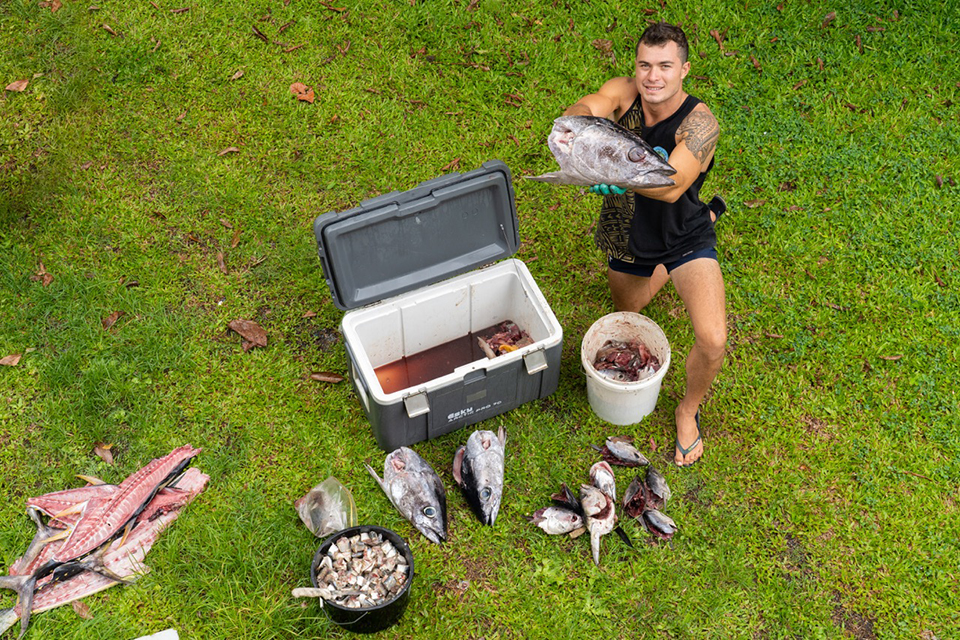What’s it like being a research assistant for Sharks Pacific? We asked Cook Islander Marino Evans to give us the low down on what it’s really like to tag sharks.
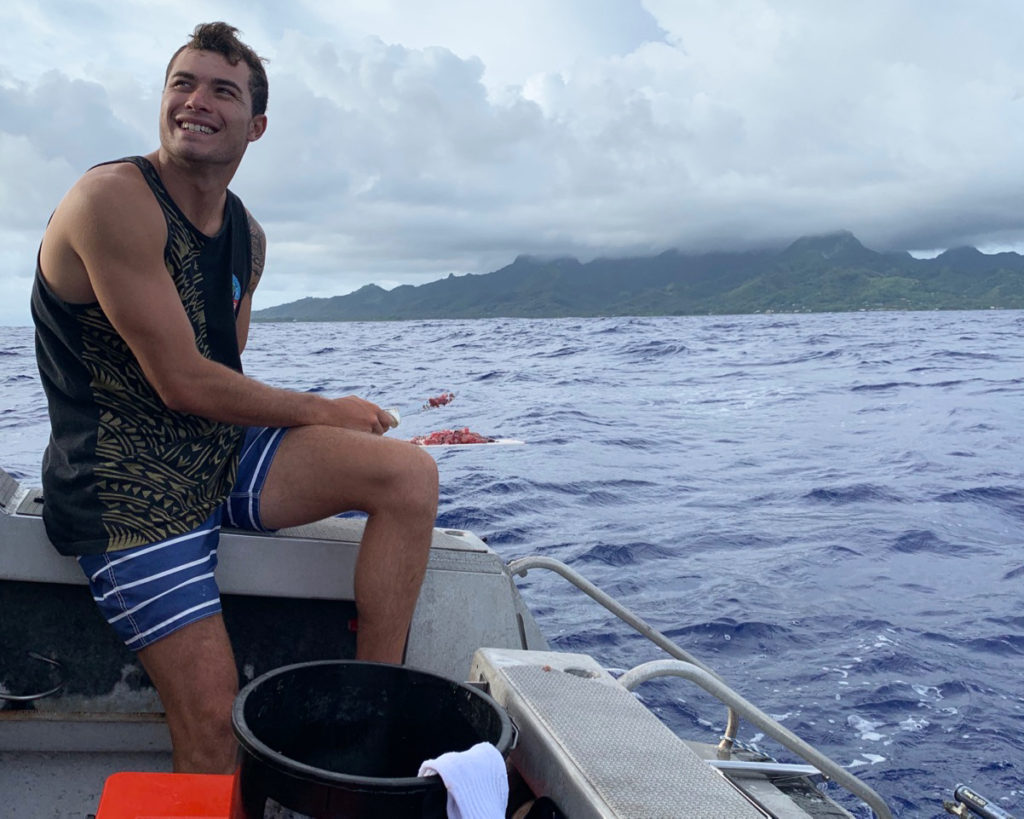
Over the past year and a half, I have been working alongside the Sharks Pacific team to tag and observe sharks in the Cook Islands waters. I was also fortunate enough to go on an expedition to our furthermost atoll, Penrhyn, and do research there. While I grew up diving and surrounded by marine conservation, this was my first formal experience doing research. So I had no idea what to expect when I was asked to join the team in April of 2018.
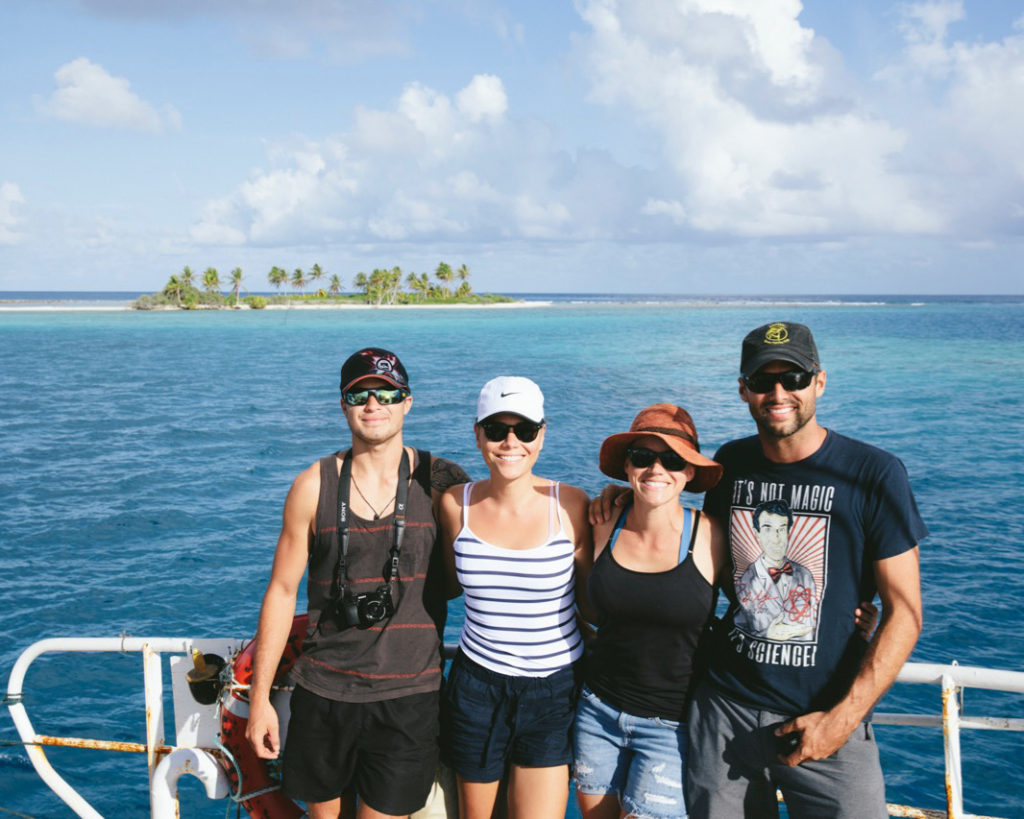
The only shark research I had seen thus far was from the Discovery Channel’s Shark Week or videos of Jacques Cousteau. Watching the team work together with numerous sharks appeared to be the coolest job out there. Ever since I was a child I knew I wanted to work with sharks. So when I was asked to join the team on the Penrhyn expedition, I jumped at the opportunity. What followed over the next 12 months tested both my gut and my mental strength. I found out soon enough, shark research is not easy!
First, there are the long hours.
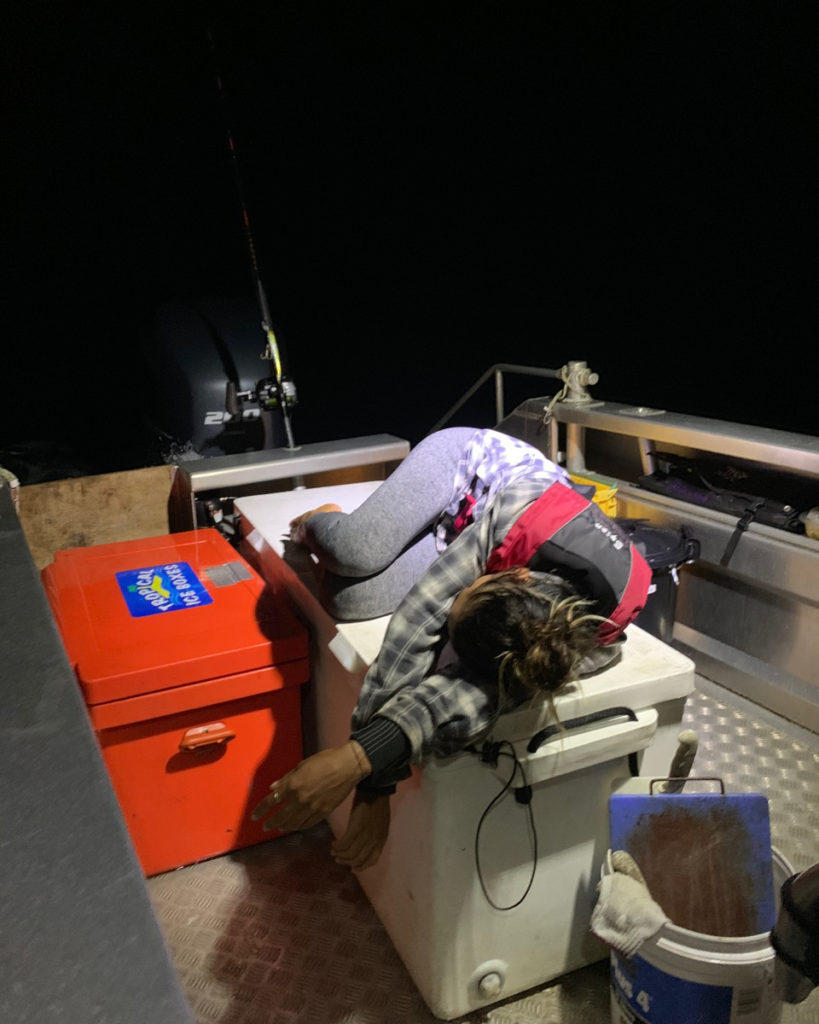
Being out on the ocean is tiring! Spending six to eight hours on a boat really takes a lot of energy out of you. We were out on the water most days before the sun was up. And while we all would have loved that extra hour of sleep, research needed to be done! The most difficult days were the 4 am wake-ups to get down to the wharf for a six-hour shark tag on a rainy day.
This leads me to the second matter: sea sickness!
If you have a strong gut and never get sea sick, you are one lucky champion and you should be shark tagging! The ocean is not forgiving and you could be out on the sea for hours while there is nothing but huge rolling swells, strong wind and cold rain. If you don’t have a strong gut…good luck mate.
Personally, I don’t spend much time on boats. So most days that I was out tagging or doing BRUVs I was crook but I never threw up! Not once. (I am slightly proud of that.) But regardless, it was not a pleasant experience. I did find that after months of going out on the boat, I finally found my sea legs and wasn’t getting sick, even on the roughest of days. This helped a lot, as working on the ocean became a whole lot easier since I was able to function properly.
And since we’re on the topic of strong guts, let’s discuss the most glamorous part of the job: fish guts.
If you can’t handle smells, gooey textures and maggots then this is not the job for you.
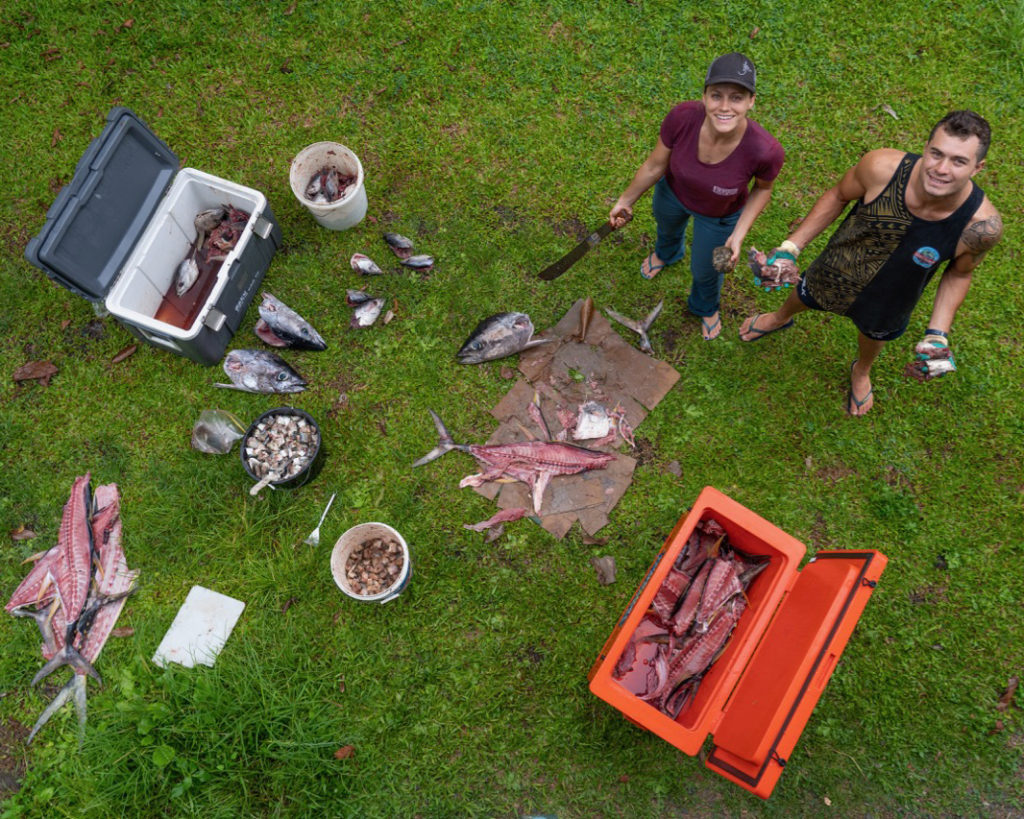
Behind every photo of a person working with a bunch of sharks, is another person chopping up rancid bait for chum to lure them in.
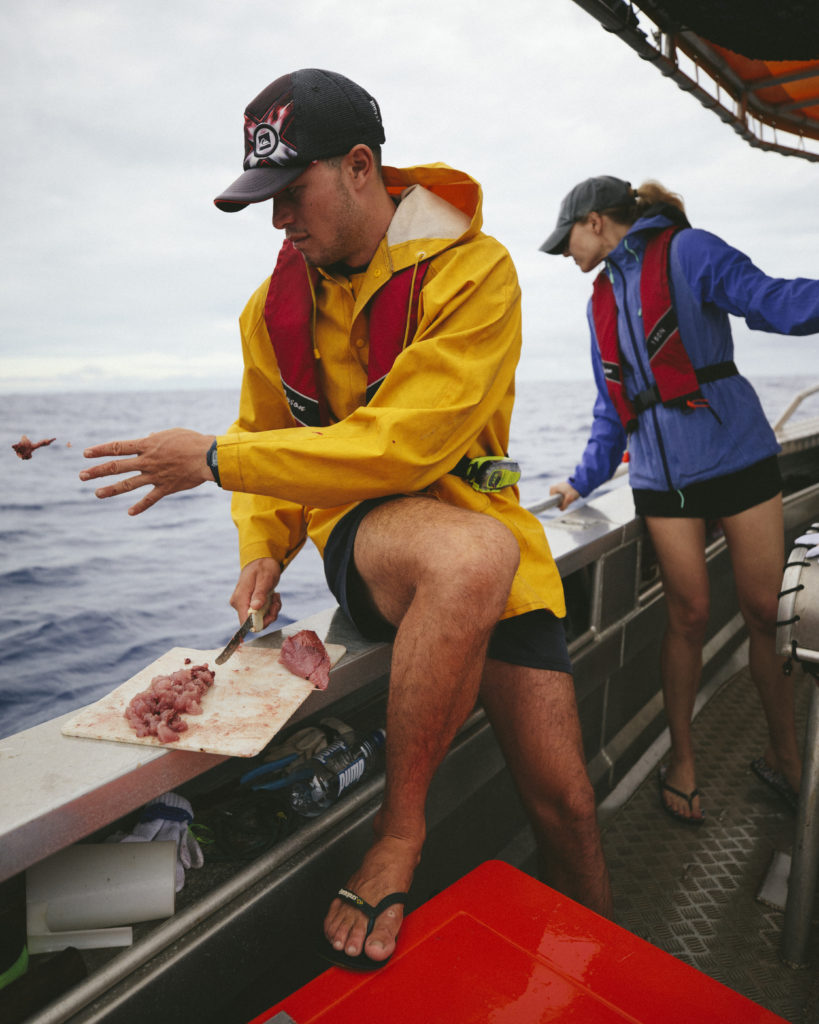
And that is basically what I did for most of my shark tagging days. I would chop fish (which was sometimes rotten) while the boat swayed and rocked by the ocean’s swell. This process would go on for hours. On some occasions we would be sea sick, chopping foul fish (one to four days old) for up to six hours and not see a sign of life.
My worst experience with bait was when we had left tuna carcasses inside a cooler for a few days because we were very low on bait, and tried to use every piece we had. Unfortunately for us, the cooler did not fully seal properly so the flies got into it. It was mid-summer, so the 30-degree humidity got into what was now a brewing broth of fish guts and meat. With the lid closed, you could smell it from 5 meters away. We carted it in the boot of Jess’s car to the wharf where we then took it out to sea. On the way, we had to stick our heads out the window to breathe. Then came the moment when we had to open the lid……
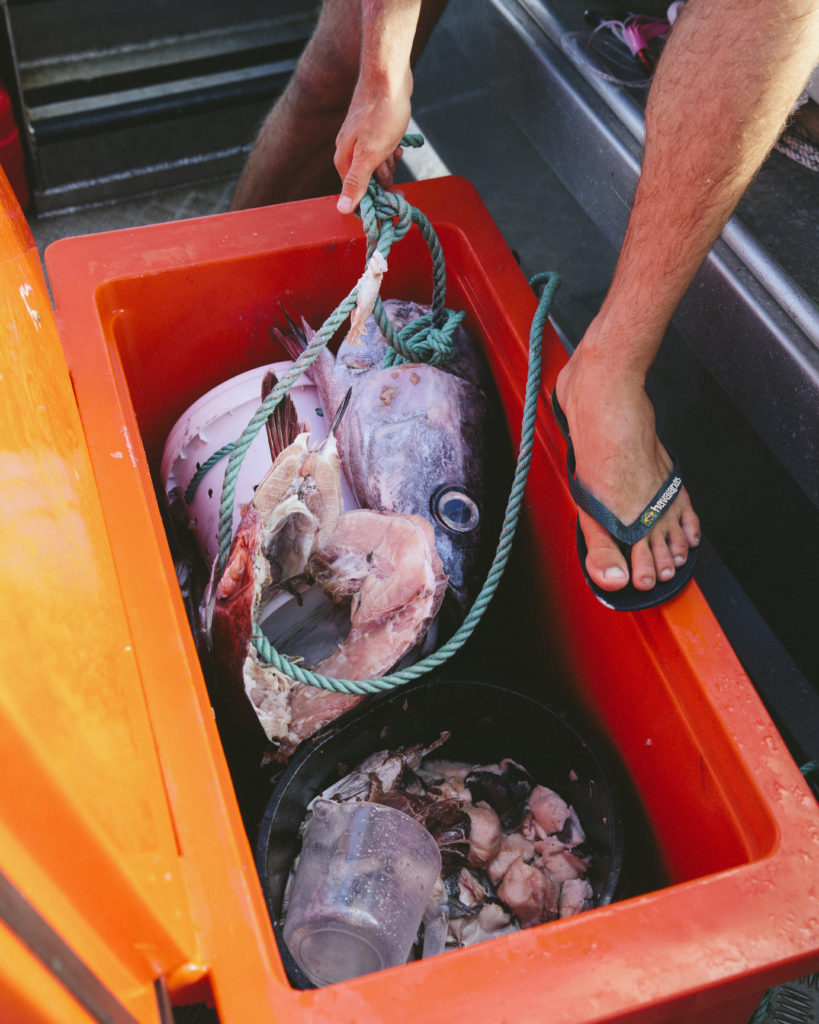
There were maggots. Everywhere!
You could feel the warmth of the broth wafting up to your face while tasting it through your nose. At that point, we decided not to chop it up but ditch it all at once. It was the gnarliest bait bin of chum I have had to deal with while doing research. But at the same time, no bait bin ever smelled pleasant.
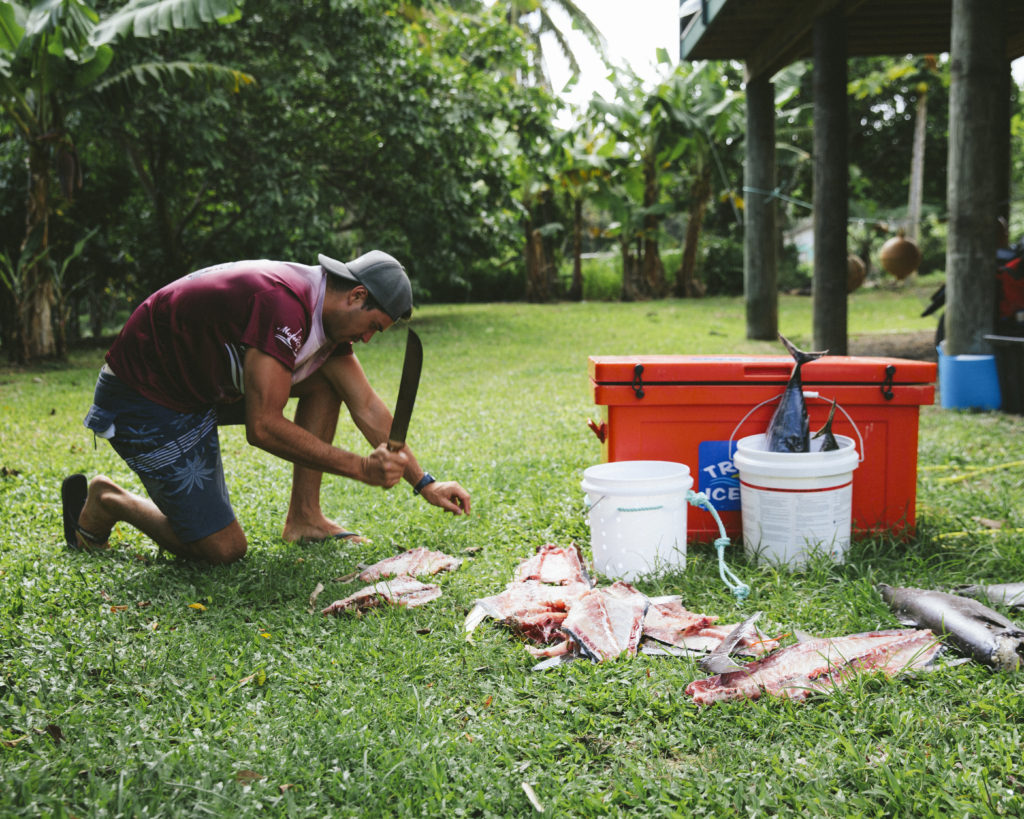
The other day I was scrolling through Instagram and I saw a post where a woman was talking about her shark research. What made me laugh were the many people commenting on it, saying how lucky this woman is to be working with sharks every day for a job and how they wish they were her.
In my perspective, yes, she is super fortunate to be out on the water with sharks every day over being stuck inside an office. But I also wanted to write this to assure you that shark research is not easy. Of course there are more difficult jobs out there, but the majority of people could not fathom enduring the long hours, boredom and excruciating smells you have to put up with for less than five minutes you may possibly have seeing and handling a single shark.
I would encourage everyone to give it a go and at least learn more about our teethy friends. Just keep in mind, that behind every photo of a person doing research of any sort out on the field, there is always a story of struggle that has made it possible for them to progress.
This work was generously supported by Lyda Hill Philanthropies and National Geographic Society.


